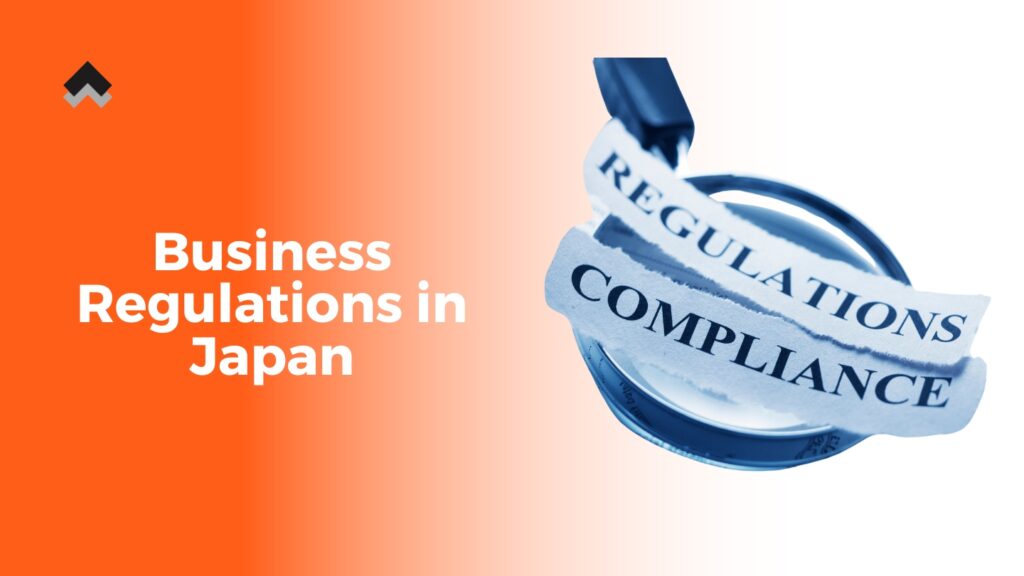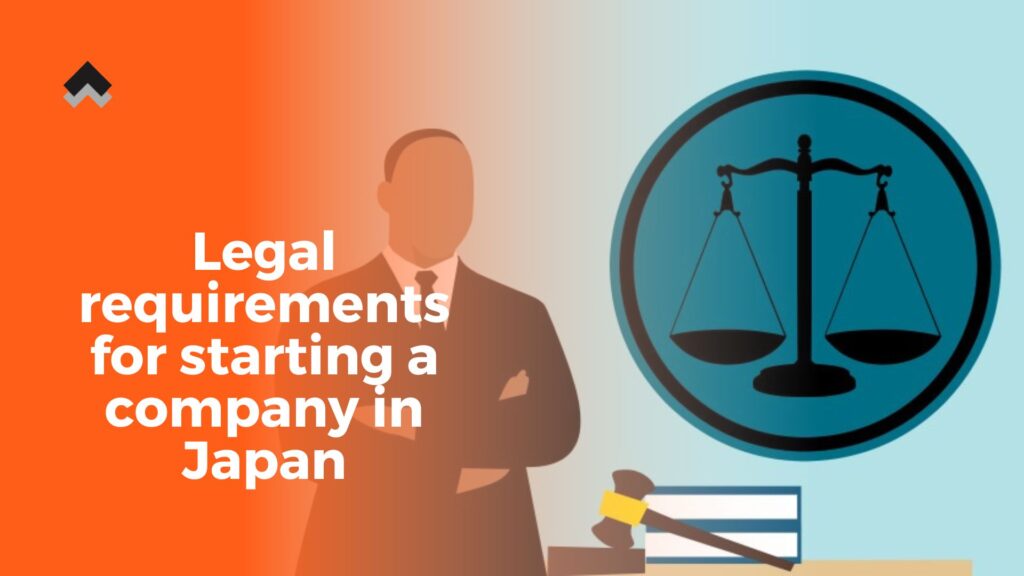Introduction
So, you’ve decided to become an entrepreneur and want to start a business in Japan. With the fourth-largest economy in the world, Japan offers tremendous potential for new ventures. However, understanding business regulations in Japan is crucial for ensuring a smooth and successful startup journey. In this article, we will explore essential aspects such as business visas, labor laws, necessary licenses, and much more to help you navigate the regulatory landscape effectively.
Japan’s business landscape is both dynamic and complex, with a unique set of regulations that can be daunting for newcomers. Familiarizing yourself with the country’s legal and regulatory framework is the first step towards a successful business venture. This comprehensive guide on business regulations in Japan will provide you with the necessary knowledge to comply with local laws, avoid potential pitfalls, and leverage the opportunities available in this thriving market.
- Introduction
- Why do I need a business visa or work permit?
- 3 Tax and Company Regulations You Should Keep in Mind
- What are the Employment and Labor Regulations in Japan?
- How do I comply with Industry-Specific Regulations?
- What permits do I need and how do I manage Trade, Intellectual Property, and Dispute Resolution?
- Final Thoughts
Why do I need a business visa or work permit?
Once you’ve decided to start a business in Japan, it’s essential to understand the crucial details about business visas and work permits in order to comply with business regulations in Japan.
How do I obtain Business Visas and Work Permits?
Before you start your business, securing a long-term business visa is essential. Typically, you will need at least 5 million yen in capital to apply for this visa. While it may be possible to register for a visa without meeting all requirements, you cannot legally operate your company until all visa conditions are fulfilled. For detailed guidance, visit our article on How to Get a Business Manager Visa in Japan.
A business visa is crucial because, without one, foreign entrepreneurs cannot run their business for more than 90 days. If you plan to stay in Japan, obtaining a business visa is vital. Remember, you must renew your business visa at least three months before it expires. The minimum capital requirement for a business visa is 5 million yen, and the visa typically lasts around one year, with potential extensions up to five years.
Why is opening a corporate bank account important?
The next crucial step when considering business in Japan is opening a corporate bank account. This account will enable your company to receive business income and conduct transactions efficiently. For detailed information, refer to our extensive Incorporation Documents in Japan.
So, why is having a corporate bank account important? Corporate banking offers numerous perks and solutions that personal banking does not provide, including credit, asset, and cash management. Credit management helps determine which customers should receive credit and assesses their creditworthiness. Asset management evaluates financial risks and develops strategies to achieve financial goals. Cash management monitors cash flow to ensure sufficient funds for transactions.
Regarding currency regulations, there is no limit on the amount you can take in and out of Japan. However, transactions exceeding 1 million yen must be recorded in a customs declaration. Some of the most popular and trusted banks in Japan include SMBC, MUFG, and SBI Shinsei Bank.
3 Tax and Company Regulations You Should Keep in Mind
Now that you have set up a corporate bank account, what are the tax laws you need to comply with according to business regulations in Japan?
Important Tax Obligations You Should Know
When you run a business in Japan, understanding your tax obligations is crucial. Familiarize yourself with the various taxes you need to comply with to ensure full compliance with business regulations in Japan. For more detailed information, refer to our A Guide to Japanese Taxes for New Businesses.
What are the Anti-Corruption and Anti-Bribery Laws in Japan?
Two critical anti-corruption laws in Japan are the Unfair Competition Prevention Act (UCPA) and the Penal Code. For a more detailed understanding, refer to Outline of the Japanese Unfair Competition Prevention Law.
For KK businesses, what are Annual General Meetings and how to communicate with Shareholders?
Annual general meetings (AGMs) are crucial events where a company’s shareholders convene once a year to review the past year’s performance, set future goals, and vote on important issues. It is mandatory for joint stock companies (kabushiki-kaisha) to hold AGMs, but not for limited liability companies (gōdō-kaisha).
AGMs must be held within six months of the financial year-end, and notices should be sent at least 15 days, but no more than 50 days, in advance. The notice should include the meeting date and time, location, any special resolutions, and the duration of the previous AGM. Additionally, the interval between AGMs should not exceed 15 months. Failure to hold an AGM in a timely manner can result in fines for the company.

What are the Employment and Labor Regulations in Japan?
To grow a successful business in Japan, it is crucial to comply with labor laws and treat employees fairly. This approach not only attracts talent to your company but also encourages them to stay.
Important Labor Laws and Employment Regulations
The standard workweek for an employee in Japan is 8 hours per day or 40 hours per week, with typical working hours from 9 AM to 5 PM or 10 AM to 6 PM. If an employee works more than 8 hours per day or 40 hours per week, they are entitled to overtime pay. Employers are prohibited from forcing employees to work against their will through violence, intimidation, or any other coercive methods, as stipulated by the forced labor law.
Many companies in Japan use a hiring process known as “shinsotsu,” which focuses on recruiting for specialized jobs based on character, ambition, and communication abilities. For more insights into employment practices, refer to our HR in Japan: Top 5 Tips.
Salaries in Japan are typically paid monthly, with averages ranging from 470,000 to 580,000 yen depending on the city. Tokyo boasts the highest average wages in the country. In addition to their salaries, employees often receive summer and winter bonuses, and may also benefit from allowances for accommodations, transportation, and family support.
Regarding termination, employers must provide at least 30 days’ notice to the employee unless an exception applies. Termination can only occur for valid reasons.
New hires will require specific documentation before they can start working. Refer to our guide on Documents for New Hires and visit Social and Labor Insurance for necessary employee documentation.

Important Health and Safety Regulations
All workplaces in Japan are required to provide routine health examinations to employees, including pre-employment health checks. Employers must actively investigate and mitigate any dangers posed by buildings, substances, facilities, or other occupational risks. Companies of certain sizes are mandated to appoint a General Safety and Health Manager (GSHM). For forestry, mining, construction, transportation, and cleaning industries, 100 or more employees require a GSHM. For manufacturing, electricity, gas, heat supply, waterworks, communications, wholesaling, and retailing industries, 300 or more employees require a GSHM. Other industries need a GSHM after employing at least 1000 workers. This manager is responsible for preventing hazards and ill health among workers, educating staff on health and safety practices, administering medical examinations, and investigating the causes of industrial accidents to prevent recurrence. Non-compliance with these health and safety standards can result in fines of up to 300,000 yen.

How do I comply with Industry-Specific Regulations?
Ensure you adhere to the specific business regulations in Japan that apply to your industry.
Industry-Specific Regulations
To understand the specific business regulations in Japan for your industry, refer to the following resources:
- The Automobile and Technical Regulations
- Technology Sourcing Laws and Regulations
- Basic Policy of the Japanese Steel Industry
- For a comprehensive overview of other industry regulations, visit Regulatory & Legal Issues
- For information on permitted business types in various areas, check out Land Use Zones in Japan.
Environmental Regulations
General laws that protect the environment can be found under Japan’s Regulations and Environmental Law. So, what is considered waste, and how do you manage it? Waste includes any garbage such as sludge, human excretion, oil, acid, animal remains, and more. It is crucial not to dispose of radioactive or contaminated materials improperly. The responsibility for any waste produced lies with the operator, although it can be outsourced to a certified waste disposal operator. When outsourcing, the waste producer must maintain a manifest detailing the waste information and remains accountable until the waste is fully disposed of. Additionally, waste must be stored at its production site until processed and cannot be disposed of at the site of origin.
Consumer Protection Laws
Who is required to comply with consumer protection laws in Japan? Unfortunately, it’s not straightforward. There isn’t a single law that covers all aspects of consumer protection. Instead, various laws address specific issues. It’s essential to familiarize yourself with these regulations to stay informed. For more information on key consumer protection laws, refer to the Consumer Contract Act, Installment Sales Act, and the Product Liability Act, among others.
Data Protection and Privacy Laws
Laws on data protection in Japan are constantly evolving due to the increasing importance of data security. Key regulations include the Act on the Protection of Personal Information (APPI) and Act on the Use of Numbers to Identify a Specific Individual in the Administrative Procedure (My Number Act). To comply with APPI, businesses must obtain consent, clearly identify the purpose of data use, use legal bases, ensure data accuracy, maintain robust security measures, and inform authorities in the event of a data breach. For more detailed guidance on compliance, refer to Japan Data Protection Law.
What permits do I need and how do I manage Trade, Intellectual Property, and Dispute Resolution?
Here is a comprehensive overview of handling business regulations in Japan, along with other useful information.
What are the Requirements for Permits and Licenses?
The most common businesses that require licenses in Japan include real estate and construction, the food industry, alcohol handling, dealing in second-hand or used products, recruitment services, financial services, cosmetics, and medical or pharmaceutical businesses. For detailed requirements for each industry, refer to Business Licenses in Japan. The application process will generally take 2 to 3 months.
Importing and Exporting Goods
When importing goods into Japan, you must declare them to the Director-General of Customs and obtain an import permit. For detailed guidance, refer to our information on Import Permits and how to acquire them. All imported goods will be examined, and certain items, such as hazardous materials, animals, and valuable items, require a Japanese import license, which is typically valid for four months. Additional documents may be required depending on the imported goods. Ensure proper packing, marking, and labeling of items. Note that certain items, such as explosives, firearms, narcotics, and counterfeit currency, are prohibited from import. Always check which items are allowed for shipment to comply with business regulations in Japan.

Protecting Intellectual Property Rights
U.S. trademarks do not apply internationally, and there is no universal “international copyright” protection. However, many countries, including Japan, offer copyright protection to foreigners. In Japan, protection is granted on a file-to-file basis, and it is the responsibility of the holder to register and protect their intellectual property. Seeking advice from attorneys or IP consultants in Japan is advisable. To comply with intellectual property laws, you should register patents and copyrights, register products and domain names, create employee contracts with confidentiality clauses, and implement robust security measures. More information can be found in Protection of Intellectual Property.
Final Thoughts
In this article, we covered essential business regulations in Japan, including the necessary work permits and business visas, the importance of opening a corporate bank account, anti-bribery laws, AGMs, labor laws, health and safety regulations, environmental laws, consumer protection, data protection, importing and exporting, and intellectual property protection. By adhering to these regulations, you can ensure a smooth business experience in Japan.
Japan is rapidly becoming a prime location for starting a company due to its unique culture and innovation. The country’s laws are generally favorable to entrepreneurs, and startups can receive substantial government support. There are many compelling reasons to start a business in Japan. If you need assistance, consider reaching out to a business advisor in Japan.


